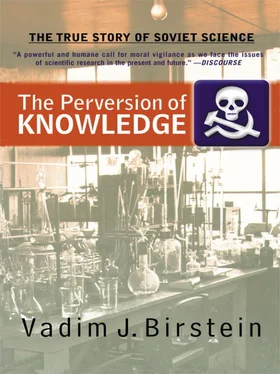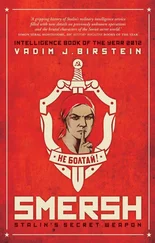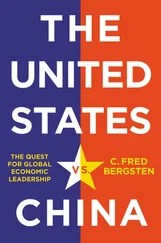Men’shagin, Boris(1902–1984), lawyer and the longest Soviet political prisoner kept in solitary confinement. Born in the city of Smolensk into a lawyer’s family. In 1919, joined the Red Army. In 1929, refused to join the Bolshevik Party and resigned. Graduated and became a lawyer in Moscow (1931–1937). In 1937–1941, defended people arrested on political charges in Smolensk. After the conquest of Smolensk by Nazi troops in 1941, was appointed burgomaster. In April 1943, witnessed the discovery of a mass grave of Polish officers killed in 1940 by the NKVD near the village of Katyn. In late 1943, escaped with his family to Karlovy Vary (Chechoslovakia), where he was detained by mistake by the Americans for a few weeks. In search of his family, went back to the Soviets not knowing that his family had successfully escaped to the Americans. On May 28, 1945, was arrested by the Second SMERSH Directorate, transferred to Moscow and kept in Lubyanka Prison. Refused to testify at the Nuremberg Trial (1946) in favor of the Soviet version of the Katyn Massacre. On September 12, 1951, sentenced to 25 years’ imprisonment. From November 30, 1951, in Vladimir Prison, where was kept under No. 29 until 1954. Spent 23 years in solitary confinement. Released on May 28, 1970, and assigned to live in remote state-supported nursing homes in northern Russia under constant KGB surveillance.
Menzhinsky, Vyacheslav(1874–1934), VCheKa/OGPU figure. Like Dzerzhinsky, was of Polish origin. Deputy commissar (1917–1919), then commissar of finances. Deputy head (1919), then head (1920–1922) of the VCheKa Special Department (OO), head of the GPU Secret-Operational Department (1922–1923), first deputy chairman (1923–1926), then chairman of the OGPU (1926–1934) (Gerson, Lennard D ., The Secret Police in Lenin’s Russia (Philadelphia: Temple University Press, 1976), p. 315; Leggett, The CHEKA , pp. 264–275; Kokurin and Petrov, Lubyanka , p. 11).
Merkulov, Vsevolod(1895–1953) joined the Georgian CheKa/OGPU (1921–1932), then a Georgian Communist Party functionary (1934–1938). Deputy head (1938), then head (from December 17, 1938) of the NKVD Main State Security Directorate (GUGB); also head of the GUGB Third Department and first deputy NKVD commissar. NKGB commissar (February–July 1941), first deputy NKVD commissar again (July 1941–April 1943), and NKGB commissar/MGB minister (1943–May 1946), head of the Main Directorate of the Soviet Property Abroad (Germany) (1947–1950), minister of state control (1950–1953). Arrested on August 19, 1953, and tried together with Beria. Shot on December 23, 1953. Not rehabilitated (Petrov and Skorkin, Kto rukovodil NKVD , pp. 296–297).
Meshik, Pavel(1910–1953) joined the OGPU in 1932. Deputy head of a division within the OGPU/GUGB Economic Department (1933–1935), then in different departments. Head of the Investigation Division of the NKVD Economic Department (1939–1940), head of the NKVD Economic Directorate (1941–1943), deputy head of the SMERSH Main Directorate (1943–1945). In 1945, in Poland. Deputy head of the First Main Directorate under the Council of Commissars/Ministers (in charge of the Soviet atomic project) (1945–1953). Ukrainian MVD minister (March–June 1953). Arrested on June 30, 1953, tried together with Beria and Merkulov, condemned to death on December 23, 1953, and shot. Not rehabilitated (Petrov and Skorkin, Kto rukovodil NKVD , p. 297).
Michurin, Ivan(1855–1935), amateur agronomist and plant breeder. Attempted to prove the inheritance of acquired characteristics by developing varieties of fruit trees and berries. Honorary member of the Agricultural Academy (VASKhNIL) and of the Academy of Sciences (1935). Lysenko named his own pseudotheories the “Michurinist biology.”
Mikhoels( Vovsi) , Solomon(1890–1948), Jewish actor, theater director, and teacher; director of the Moscow State Jewish Theater (1929–1948). Chairman of the Jewish Anti-Fascist Committee (JAC) (1942–1948). In 1943, together with the JAC Secretary Isaak Fefer, visited the United States, Canada, Mexico, and Great Britain, where they lectured about Nazi atrocities and the JAC activity. On January 13, 1948, killed together with an MGB agent, Gol-ubov-Potapov, on Stalin’s personal order in the city of Minsk (Belorussia). On the order of MGB Minister Abakumov, First Deputy MGB Minister Sergei Ogol’tsov, and Head of the Belorussian MGB Lavrentii Tsanava, the assassination was staged as a truck accident. The killing of Mikhoels triggered the official anti-Semitic campaign, which ended up as a case against the JAC members and later, as the Doctors’ Plot case.
Mikoyan, Anastas(1895–1978), Party and state figure. Joined the Bolsheviks in 1915. Commissar of inner and foreign trade (1926–1930), commissar of supply (1930–1934), commissar of food industry (1934–1938), and commissar/minister of foreign trade (1938–1949). Deputy chairman of the Council of Commisars/Ministers (1937–1955), member of the State Committee of Defense (1942–1945), minister of trade (1953), first deputy chair of the Council of Ministers (1955–1964), chairman of the Supreme Council (1964–1965), and member of the Presidium of the Supreme Council (1965–1974). A Politburo/Presidium member (1935–1966). Retired in 1974.
Mironov, Lev(1895–1938; pseudonym of Lev Kagan) joined the OGPU Economic Directorate in 1924. Head of this directorate (1931–1934), then head of the GUGB Economic Department (1934–1936), head of the Third (Counterintelligence) Department of the Main State Security Directorate (GUGB) (1936–1937). Arrested on June 14, 1937, and shot on August 29, 1938. Not rehabilitated (Petrov and Skorkin, Kto rukovodil NKVD , pp. 300–301).
Mitin, Mark(1901–1987), Marxist philosopher. Joined the Communist Party in 1919. Graduated from the Institute of Red Professors (a special Party college) (1929), director of the Marx and Engels Institute in Moscow (1939–1944). Chief editor of the Party magazine Under the Banner of Marxism (1930–1944), member of the Central Committee (1939–1944; 1950–1956). Academician (1939), deputy director of the Academy Institute of Philosophy, member of the Academy Presidium (1939–1946). Took part in the “discussion” on genetics in 1939 and in the events of 1948. Stalin Prize (1943).
Molotov( Skryabin) , Vyacheslav(1890–1986), Party and state figure, a Politburo member (1926–1957). Secretary of the Central Committee of the Ukrainian Communist Party (1920–1921), secretary of the Central Committee (1921–1930), first secretary of the Moscow Committee (1928–1929), chairman of the Council of People’s Commissars (Sovnarkom) (1930–1941), Foreign commissar/minister (1939–1949), deputy chairman of the State Committee of Defense (1941–1945), deputy chairman (1941–1942; 1946–1953) and then first deputy chairman (1942–1946; 1953–1957) of the Sovnarkom/Council of Ministers, foreign minister (1953–1956), minister of state control (1956–1957), ambassador to Mongolia (1957–1960), head of a group of Soviet representatives at the International Agency on Atomic Energy (1960–1962). In 1962, was forced to retire and was expelled from the Party. In 1984, restored as a Party member. Actively joined with Stalin, Yezhov, and Beria in drafting numerous arrest lists and signing death sentences during the years of the Great Terror (1936–1938).
Muralov, Aleksandr(1877–1937), Party and state figure. Commissar (1923–1929), then deputy commissar (1929–1937) of agriculture. In 1935 replaced Vavilov as president of the Agricultural Academy. Arrested in 1937 because of his brother, Nikolai (1887–1937), also a Party functionary and a victim of the Pyatakov Show Trial (January 23–30, 1937). Nikolai was shot on February 1, 1937, before Aleksandr. Both brothers were rehabilitated (Conquest, The Great Terror , pp. 147–167; Tikhanova, V., ed., Rasstrel’nye spiski. Vypusk 1: Donskoe kladbishche, 1934–1940 [The Lists of the Executed. Issue 1: Donskoe Cemetery, 1934–1940] (Moscow: Memorial, 1993), pp. 78 and 81 (in Russian).
Читать дальше











